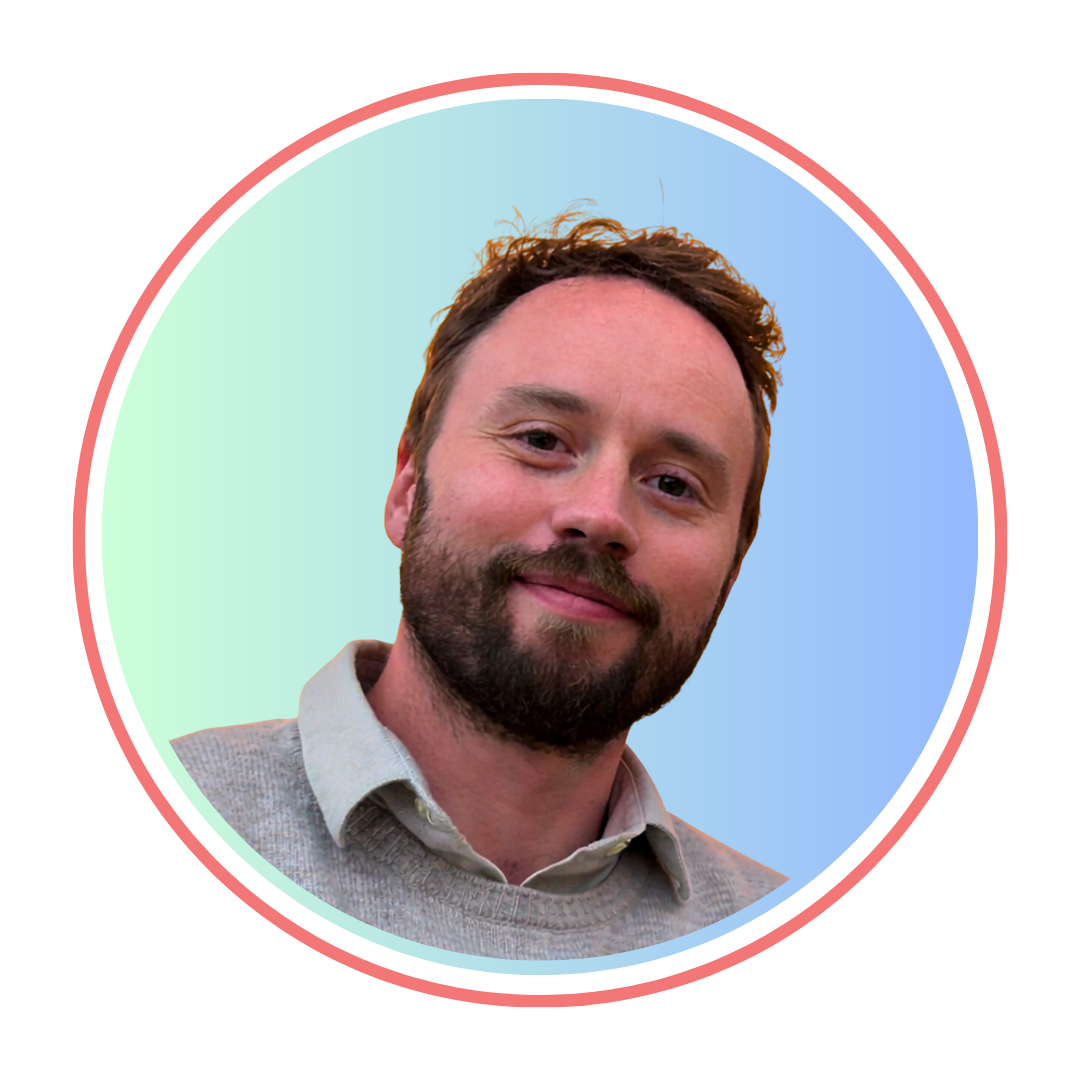4:00 pm ET
“From Visualization to Conversational Data Exploration with HoloViz”
with Philipp RüdigerWe will look at how the evolution of HoloViz reflects broader trends in the Python ecosystem over the last decade. We start in the early days of interactive data visualization, when tools like Bokeh and Plotly challenged static plotting and made it possible to explore large datasets dynamically in Python. HoloViz emerged in this moment, focused on composable, high-level abstractions that treated interactivity as a core part of data analysis.
We then move into the shift from notebooks to data applications, even before frameworks like Dash and Streamlit emerged, we created Panel as a way to quickly share analyses with other users. Panel was developed to bridge analysis and application building, allowing Python users to structure, deploy, and share interactive workflows without splitting their codebase or leaving the open-source scientific stack. This transition marked a turning point for HoloViz, transforming it from a set of visualization tools into a platform for building production data apps.
The conversation closes with the current wave of change driven by large language models. As “vibe coding” has emerged as an alternative way to quickly prototype applications, we discuss how HoloViz and Panel in particular are staying relevant. Additionally, we take a look at the latest HoloViz project, Lumen, providing an approach to make analysis more accessible without sacrificing structure, transparency, or trust. We discuss how HoloViz is responding by combining conversational interfaces with auditable, Python-based execution that remains fully extensible and open source, and what this transition means for the project as the Python ecosystem continues to evolve.
Meet Philipp Rüdiger

Philipp Rüdiger is Principal Software Engineer and the HoloViz Team Lead at Anaconda, working in the Professional Services team. At Anaconda, he develops open-source and client-specific solutions for data management, visualization and analysis. He is the author of the open source dashboarding and visualization libraries Panel, hvPlot and Lumen and one of the core developers of Bokeh, Datashader and HoloViews. Before making the switch to software development Philipp completed my PhD and Masters in Computational Neuroscience at the University of Edinburgh working on biologically inspired, deep and recurrent neural network models of the mammalian visual system.
Recent Events
#43 Efficient Statistical Modeling for Particle Physics Using Computational Graphs in Python
Dr. Giordon Stark — January 28, 2026
Statistical modeling is central to discovery in particle physics, yet the tools commonly used to define, share, and evaluate these models are often complex, fragmented, or tightly coupled to legacy systems. In parallel, the scientific Python community has developed a variety of statistical modeling tools that have been widely adopted for their performance and ease of use, but remain under-utilized in particle physics. We attempt to bridge this gap with a lightweight python framework that calculates likelihood ratios through the construction and evaluation of computational graphs. With modularity, auto-differentiability, and computational efficiency in mind, we designed the framework to integrate with modern scientific computing ecosystems while providing a clean, well-documented, and extendable API. This implementation makes published particle physics results more transparent, reproducible, and accessible for reanalysis. We present the initial framework, validate its results against established calculations, examine its performance relative to existing systems, and outline future development plans.
Watch on Youtube#42 Why marimo lets me dream about Python notebooks again
Vincent Warmerdam — December 03, 2025
For well over a decade, Python notebooks revolutionized our field. They gave us so much creative freedom and dramatically lowered the entry barrier for newcomers. Yet despite all this ... it has been a decade! And the notebook is still in roughly the same form factor.
So what if we allow ourselves to rethink notebooks ... really rethink it! What features might we come up with? Can we make the notebook understand datasources? What about LLMs? Can we generate widgets on the fly? What if we make changes to Python itself?
This presentation will be a stream of demos that help paint a picture of what the future might hold. I will share my latest work in the anywidget/marimo ecosystem as well as some new hardware integrations.
The main theme that I will work towards: if you want better notebooks, reactive Python might very well be the future.
Watch on Youtube#41 From Code to PyPI: Streamlining Your Python Package Release with GitHub
Will Dean — October 29, 2025
Releasing a Python package to PyPI can be a complex process, but it doesn't have to be. This talk provides a comprehensive walkthrough of how to streamline your entire development and release workflow using the power of GitHub. We will cover best practices for ensuring code quality with pre-commit hooks, running automated tests across platforms, and using GitHub Actions to publish your package and deploy documentation. Learn how to leverage repository labels to generate clean, automatic release notes. Using the open-source frame-search library as a real-world example, you'll leave with a clear roadmap to create a smooth, repeatable, and professional release process for your own Python projects.
Watch on YoutubeAbout Us
At Don’t Use This Code, we want to create a unique opportunity to see Python succeed and thrive within the National Labs! We propose creating a new resource for scientists, researchers, and technical staff to support their use of Python and to build a strong, lasting community for Python users within the Department of Energy National Labs. Disclaimer: The Python Exchange is an independent group of Python enthusiasts who wish to see the use of Python and open-source computing thrive within the National Lab system. This group is not sponsored by or affiliated with the Department of Energy.


